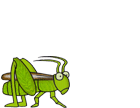Information For Action www.informaction.org
| W | E | T | L | A | N | D | S |
What are wetlands?
Wetlands are low lying areas where water is always at or just below the surface. Types of wetlands include rivers, streams and swamps.
Why do we need wetlands?
Wetlands are important because they:
Are the home to many species of plants and animals, such as fish and frogs. These species use wetlands to feed and have babies.
Help stop flooding in the areas surrounding the wetland, as they act like a giant sponge and soak up all the water.
Can take the bad chemicals out of our water, making water safer for us to drink.
Protect river banks and shorelines from washing away.
Are sometimes the only water around for animals to drink when there is a drought.
Provide fun activities for us to do like boating, fishing, bushwalking and bird watching.
What are the threats to wetlands?
Wetlands are under threat because humans do things to change or hurt the wetlands environment. These include:
Humans changing where water naturally flows in wetlands, by doing things like building dams. This can stop enough water from getting to wetlands, which can make the wetlands dry out.
Water pollution in wetlands. When pollutants like chemicals get into wetlands, animals and plants that live there are killed.
Humans introducing plants and animals that donít belong in an area. These plants and animals may kill the other plants that are meant to be there.
Natural disasters such as fires, floods, cyclones and droughts causing harm to wetlands. These natural disasters can change the vegetation and water flow in wetlands.
What will happen if all the wetlands that are still here today disappear over time?
There will be more floods because there will not be any wetlands left to hold the water and keep our houses safe.
The loss of wetlands will mean those animals and plants that used to live there will have no place to live.
There will be an increase in pollutants in our water because there will be no wetlands to remove all these pollutants.
What can you do to help?
Keep the wetlands near where you live protected and clean. Encourage your family and friends to do the same.
Encourage your parents and others to use fewer fertilizers, weed and pest killers in their gardens.
Find out if your school can join a volunteering program to help you clean up wetlands or plant new trees around wetlands.
Remember?/p>
Not only are wetlands home to many animals and plants, but they also help stop our houses from flooding and our water being polluted. Do your bit to look after these special places!





